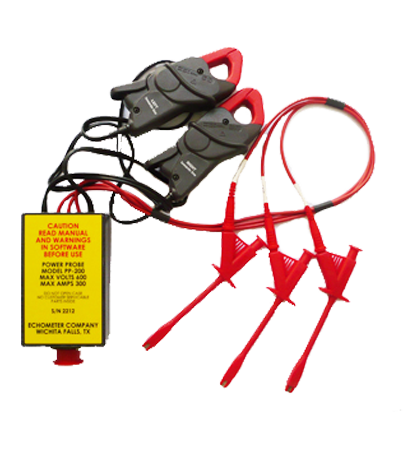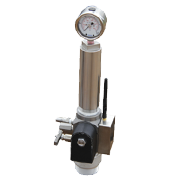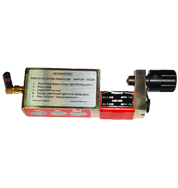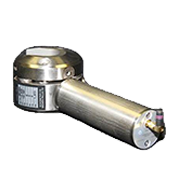Echometer Power Current Transducer
Measures motor power and current in order to determine overall system effeciency.

Overview
The power-current transducer is used for measurement of motor power and current. The amount of power that the motor uses can be measured and compared to the amount of theoretical power required to lift liquid from the net liquid level depth (obtained from an acoustic liquid level test) to determine an overall system efficiency. This is very important for determining wells that are candidates for improved operation. A conventional beam pumped well should have an overall electrical efficiency of approximately 50%. Wells operating at low efficiencies can be further analyzed to determine the proper procedure to improve operations.
The power-current transducer consists of three voltage probes that are attached to the three wires to the motor. Two current transducers are installed around two of the three wires that power the motor. The power-current transducer assembly is compact and has approximate dimensions of 8" x 12" x 8". Wires do not need to be removed or changed in any way to install the power-current transducer.

Key Features
- Helps determine wells that are candidates for improvement
- Does not require that wires be moved or changed to install transducer
Specifications
- 8" x 12" x 8"
Documentation
Related Products
Well Monitoring Equipment used frequently with the Power Current Transducer

Wireless Remote Fire Gas Gun
The Wireless Remote Gas Gun utilizes a high performance microphone with an excellent signal-to-noise ratio along with a 12 cubic inch volume chamber.

Wireless 5000 PSI Gas Gun
The Wireless 5000 PSI Gas Gun is a manually operated gas gun excellent for use in gas lift, flowing, and high pressure shut-in wells.

Wireless Polished Rod Transducer
The data gathered by the device allows for the software analysis of polished rod power requirement, pumping unit beam loadings, rod loadings, and pump performance.

Wireless Horseshoe Transducer
Horseshoe Dynamometer system is designed to facilitate installation of the horseshoe load cell, and to eliminate measurement errors caused by changes in pump spacing.

